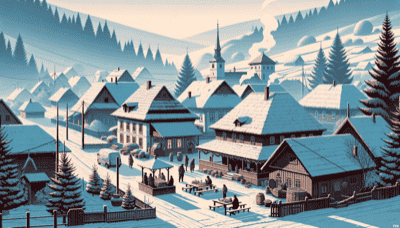We're here to help you keep count of the days to or since a date. Just click the button below and enter your chosen date to get started. Also choose the suggested days or search for a special day above #countingthedays

Date: January 2nd
History & Traditions: In Romania, the day after New Year's Day, January 2nd, while not as widely celebrated as the first day of the year, still holds its own set of customs and traditions. It is a continuation of the New Year celebrations. Historically, Romanians have placed a strong emphasis on the start of the new year, with many customs aimed at ensuring good fortune and health for the coming year.
One tradition that extends to this day is "Sorcova," where children gently tap adults with a decorated stick wishing them good luck, health, and happiness. This custom is more prevalent in rural areas and often takes place on New Year's Day or during the first few days of January.
Another continuing practice is "Plugusorul," a ritual involving a small plow pulled by children or young men through the village while reciting verses that wish for a prosperous and bountiful new year. Although it traditionally occurs on New Year's Eve, it can extend to January 2nd in some communities.
What People Do: As January 2nd is not an official public holiday in Romania, many people return to work after having January 1st off. However, festive spirits generally carry over from New Year's Eve and New Year's Day celebrations. Families and friends may still gather for meals and continue celebrating. For some, it is a day of rest and recovery from the festivities of New Year’s Eve.
Throughout Romania, traditional foods like "sarmale" (cabbage rolls) may still be enjoyed along with other festive dishes that are part of the extended holiday feasting period. In urban centers especially, life starts to return to its regular pace as people look ahead to the opportunities and challenges of the new year.